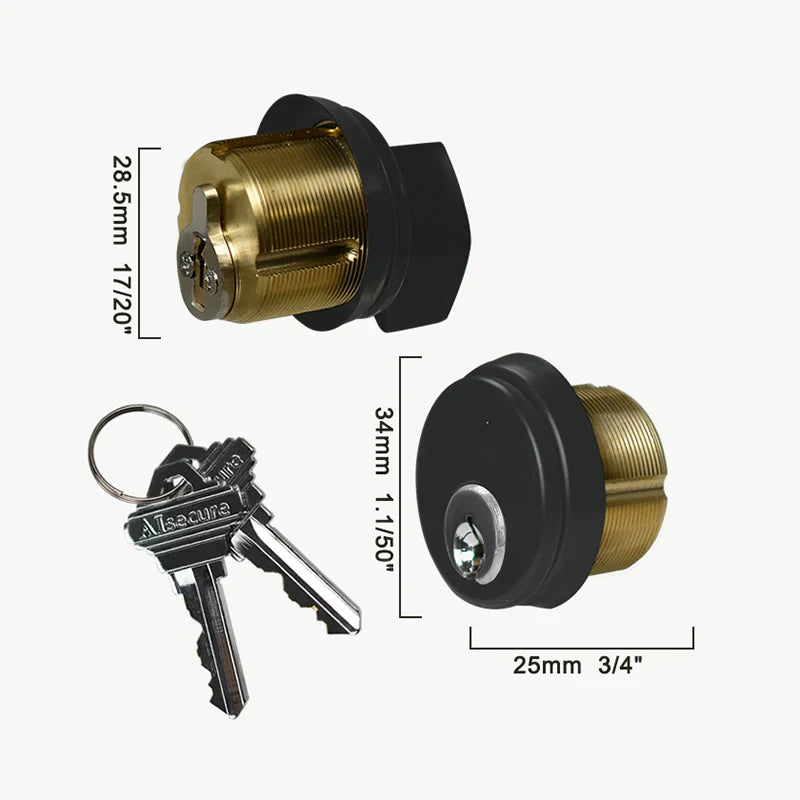
Is a Doorknob With Lock Safe for Sliding Patio Commercial Doors?
Share
Security is a vital concern for any commercial property, especially those that utilize patio-style sliding doors. Many businesses, such as cafes, restaurants, and showrooms, prefer sliding patio doors for their modern look, ease of use, and ability to bring in natural light. But when it comes to securing these doors, the choice of lock is crucial. One common question property owners ask is whether a simple doorknob with lock is enough to ensure safety for a sliding patio door in a commercial setting.
To answer this, we must first consider how a sliding patio door functions. Unlike traditional swing doors, sliding doors move horizontally on a track. This mechanism presents a unique set of security challenges. They can often be lifted from their tracks, pried open, or bypassed if the locking system is not specifically designed for sliding applications. A basic doorknob lock, which is typically designed for hinged doors, may not provide sufficient resistance against these types of intrusions.
Doorknobs with locks are generally used in residential interior doors or sometimes on exterior doors where the security risk is low. They are easy to operate and offer basic locking capability, but they are not typically rated for high-security needs. In commercial environments, particularly in areas with customer traffic or valuable equipment, the risk profile is much higher. Businesses require locking systems that can resist forceful entry, tampering, and repeated usage.
Let’s break down the key concerns associated with using a standard doorknob lock on a sliding patio door in a commercial context:
- Alignment issues: Doorknobs with locks are not typically designed to align with the latching systems of sliding doors.
- Weak resistance: Standard knobs can be easily picked, forced, or even twisted off with enough pressure.
- Material durability: Commercial doors require hardware built to withstand heavy usage. Most doorknobs with locks are not constructed with that level of durability in mind.
For these reasons, experts strongly recommend avoiding doorknob-style locks for commercial sliding applications. Instead, consider hardware that is specifically built for the structure and motion of sliding doors. This includes specialized locking mechanisms with hook bolts, anti-lift pins, and reinforced strike plates.
Security professionals also recommend the use of commercial door lock systems that meet ANSI Grade 1 or 2 standards. These are specifically designed for commercial environments and provide significantly higher resistance to tampering, drilling, and forced entry. For sliding patio doors, a commercial-grade lock often includes a heavy-duty handle, a key cylinder, and multi-point locking for enhanced protection.
Beyond just the type of lock, the placement and installation quality are also essential. A commercial sliding door should be installed with tamper-proof hardware, reinforced frames, and in some cases, auxiliary security bars that prevent the door from sliding even if the main lock is compromised. Door sensors or smart locks can also be integrated for real-time monitoring and remote access control.
Another common mistake is retrofitting a standard doorknob lock onto a sliding door without professional consultation. This can leave gaps, misalignments, and security loopholes that compromise the door’s integrity. In some cases, such setups may even void the manufacturer's warranty or violate local building codes.
So, is a doorknob with lock safe for sliding patio commercial doors? The short answer is no—at least not by itself. While it may serve as a temporary or secondary measure, it does not provide the kind of protection required in a commercial environment. Sliding doors need a purpose-built locking mechanism that can handle both the unique movement of the door and the heightened security expectations of commercial spaces.
Here are a few features to look for in a proper sliding patio commercial door lock system:
- Multi-point locking that secures the door at multiple positions.
- Hook or bolt-style latches that prevent the door from being lifted.
- High-grade materials such as stainless steel or reinforced alloys.
- Compatibility with alarm systems or smart lock integrations.
Businesses should treat door security as part of their overall safety plan. This includes considering foot traffic, hours of operation, and the location of the building. High-risk areas may also benefit from surveillance cameras, glass break detectors, or reinforced glass panels to deter break-ins.
Ultimately, investing in the right lock is not just about preventing theft—it’s about maintaining peace of mind, ensuring employee safety, and avoiding business interruptions caused by security breaches.
In conclusion, a doorknob with a lock is not a safe or adequate solution for securing sliding patio doors in commercial settings. These environments demand stronger, more specialized solutions that are tested against real-world threats. The best approach is to select a lock that is specifically designed for sliding doors and is rated for commercial use. Only then can you be confident that your entrance is as secure as the rest of your business.

